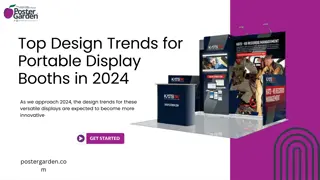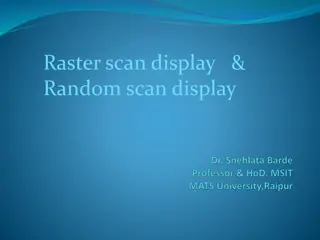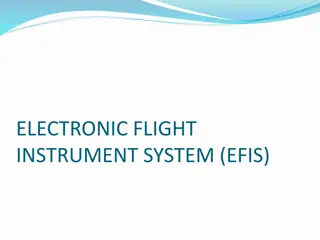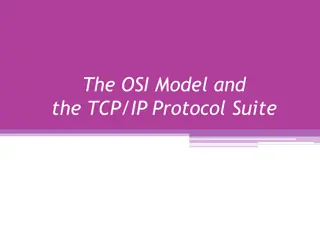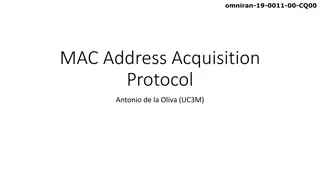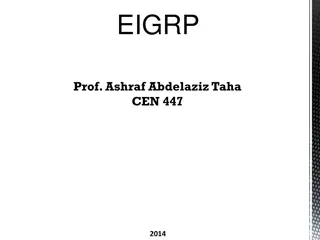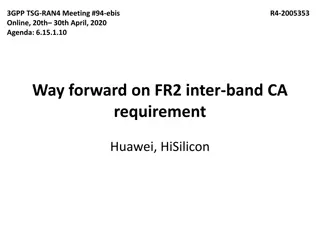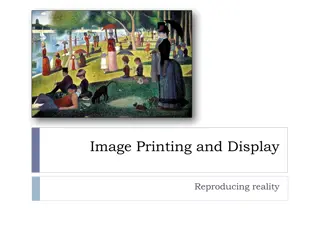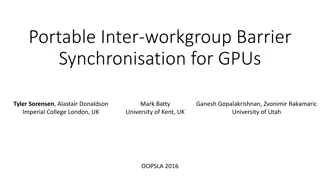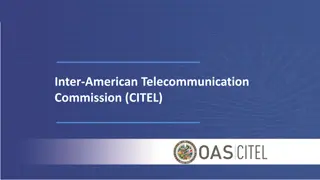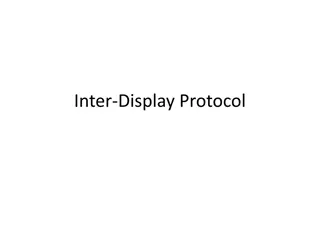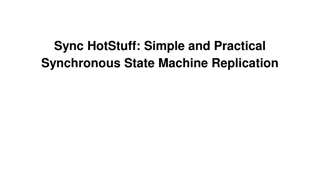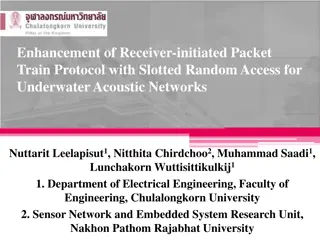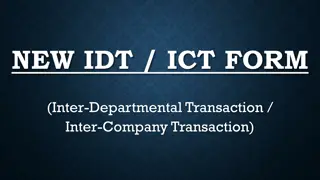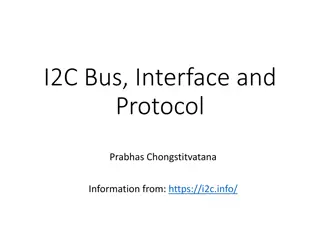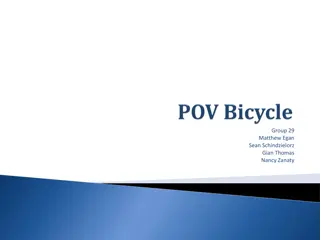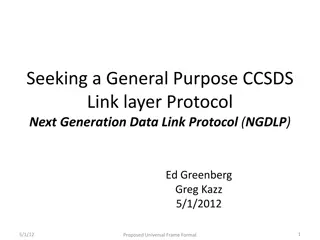Adaptive Tree-based Convergecast Protocol
Adaptive tree-based protocol for managing overlay networks in heterogeneous networks. It proposes improvements to the existing Tree-Based Convergecast Routing (TBCR) protocol by considering additional parameters such as RTT, power consumption, link stability, and link mobility to optimize routing de
32 views • 12 slides
Guidelines for Upholding Rights of LGBTQ
In light of evolving societal norms and the imperative to safeguard the rights and dignity of LGBTQ individuals and inter-faith\/inter-caste couples, the Supreme Court has given guidelines for the handling of habeas corpus petitions and petitions for police protection.\nBackground:\nRecent instance
9 views • 4 slides
Custom Display Boxes
Display Packaging Boxes are essential in today's consumer-driven market, acting as a practical requirement and a vehicle for branding reliable products. Businesses can make the most of the Custom Display Boxes create memorable experiences that connect with customers by utilising innovative design, c
3 views • 1 slides
custom Display Boxes
Display Packaging Boxes are essential in today's consumer-driven market, acting as a practical requirement and a vehicle for branding reliable products. Businesses can make the most of the Custom Display Boxes create memorable experiences that connect with customers by utilising innovative design, c
3 views • 6 slides
The impact of display in a geography classroom
Effective display techniques in a geography classroom can support students in improving geographical literacy, aid teachers in enhancing their teaching methods, and create an engaging learning environment. This approach goes beyond traditional posters and pictures to include strategic use of maps, g
0 views • 14 slides
Top Design Trends for Portable Display Booths in 2024
The constantly evolving marketing and advertising landscape has made portable display booths a vital tool for businesses to showcase their products and services at trade shows, exhibitions, and other events. As we look forward to 2024, the design trends for these versatile portable display booths ar
2 views • 10 slides
Understanding Raster Scan Display and Random Scan Display Techniques
Raster scan display involves the electron beam moving along the screen in a systematic pattern to create an image, while random scan display directly draws pictures in any order. Raster scan is commonly used in devices like TVs and monitors, providing high color accuracy but may have lower resolutio
0 views • 9 slides
Understanding Electronic Flight Instrument System (EFIS)
An Electronic Flight Instrument System (EFIS) replaces traditional flight deck instruments with electronic displays like the Primary Flight Display (PFD) and Multi-Function Display (MFD). EFIS enhances situational awareness for pilots by consolidating critical flight data in a single, easy-to-read i
0 views • 12 slides
Understanding OSI Model and TCP/IP Protocol Suite
Explore the concept of layering in data communication, comparing the OSI model and TCP/IP protocol suite. Learn about protocol layers, protocol hierarchies, and the functionality of each layer in these models. Discover the interrelationships between layers and the evolution from OSI to TCP/IP.
5 views • 57 slides
London Homeless Coalition (LHC) Death Communication Protocol
In 2014, the Memorial Committee of the London Homeless Coalition (LHC) established the Death Communication Protocol to acknowledge, share, and address the loss of individuals experiencing homelessness. The protocol aims to inform partnering organizations of confirmed or unconfirmed deaths, support g
0 views • 12 slides
Inter-Cluster Coordination and Information Management in Humanitarian Emergencies
Inter-Cluster Coordination and Information Management play vital roles in humanitarian emergencies. The coordination mechanism involves regular meetings convened by the RC/HC and coordinated by OCHA, providing opportunities for clusters to collaborate on shared planning, needs assessments, and poole
3 views • 13 slides
Understanding Mobile Computing and TCP/IP Protocol Suite
Mobile computing is crucial for continuous internet connectivity regardless of physical location. The TCP/IP protocol suite, consisting of Transmission Control Protocol (TCP) and Internet Protocol (IP), forms the backbone of internet infrastructure. IP addressing and mobility challenges are addresse
1 views • 51 slides
Inter-Agency SEA Community Based Complaints Mechanism in Nigeria
The Inter-Agency SEA Community Based Complaints Mechanism in Nigeria facilitates safe and confidential reporting of complaints, particularly related to sexual exploitation and abuse (SEA), by beneficiaries. Through inter-agency coordination, this mechanism ensures effective collaboration, messaging,
1 views • 18 slides
Understanding Direct View Storage Tube (DVST) in Computer Graphics
Direct View Storage Tube (DVST) is a display technology similar to CRT, using electron guns and phosphor-coated screens to display images without the need for refreshing. It stores picture patterns and maintains displays through electron beams and phosphor crystals. Components like electron guns, st
0 views • 7 slides
Understanding OSI Model and TCP/IP Protocol Suite in Computer Networking
This chapter explores the OSI model and TCP/IP protocol suite, delving into protocol layers, addressing mechanisms, and network components. It highlights the interface between layers, functions of each layer in the OSI model, and compares TCP/IP protocol suite layers with OSI model layers. The discu
0 views • 30 slides
MAAP Protocol Overview in IEEE 1722: Address Acquisition and Message Format
The MAAP (Multicast Address Acquisition Protocol) is defined in IEEE 1722 for time-sensitive applications in bridged local area networks. It involves acquiring multicast addresses through claiming, probing, and defending messages. MAAP enables dynamic allocation of addresses and defending against co
1 views • 8 slides
Managing Inter-Departmental Transfers in Financial Accounting
Inter-departmental transfers involve recording and charging costs from one department to another, with different pricing bases like cost-based and market-based transfers. Unrealized profits in transfers are adjusted using stock reserves. Entries are made at the selling price to include costs and pro
1 views • 7 slides
IEEE 802.11-20/1761r1 Ranging Protocol for 11bd
This document outlines the ranging protocol proposed for IEEE 802.11-20/1761r1, focusing on RTT-based ranging leveraging multi-channel operation. By integrating the 11az ranging protocol, it enables flexible and low-overhead application in 11bd for improved accuracy in ITS bands. The protocol includ
1 views • 13 slides
Understanding EIGRP: A Comprehensive Overview
Enhanced Interior Gateway Routing Protocol (EIGRP) is a dynamic routing protocol providing various advantages to network administrators. It is a classless routing protocol supporting VLSM and is considered an Interior Gateway Protocol (IGP). EIGRP uses advanced distance vector routing and is known f
1 views • 5 slides
Understanding SFTP Server Functionality with ACS 5.x by Mohammad Azharuddin AAA Team
SFTP (SSH File Transfer Protocol) is a secure network protocol for file access, transfer, and management over reliable data streams. It enhances security by extending the SSH protocol and can be implemented using a reliable 8-bit byte stream protocol. SFTP commands are sent as 4 ASCII letters follow
4 views • 23 slides
Enhanced Family Court Police Disclosure Protocol for 2024
The 2024 Family Court Police Disclosure Protocol addresses key issues identified in the 2013 protocol, emphasizing timely and proportionate requests for material. Changes include a new checklist for the judiciary, guidance notes, and revised processes for litigants in person. The protocol provides c
1 views • 19 slides
Agreements on FR2 Inter-Band Carrier Aggregation Requirements
Agreements have been reached on the RRM requirements and scaling factors for FR2 inter-band Carrier Aggregation, focusing on common beam and independent beam management. Discussions include alignment with Release 16 specifications, scenarios, and RF architectures. Interruption requirements for diffe
0 views • 8 slides
Understanding Image Display and Halftoning Techniques
Images are reproduced for display on various devices like televisions, computer monitors, and newspapers with specific characteristics such as pixel shape, spatial resolution, and color depth. Issues with display devices, such as pixel resolution and color depth, affect fidelity. Halftoning methods,
3 views • 44 slides
Portable Inter-workgroup Barrier Synchronisation for GPUs
This presentation discusses the implementation of portable inter-workgroup barrier synchronisation for GPUs, focusing on barriers provided as primitives, GPU programming threads and memory management, and challenges such as scheduling and memory consistency. Experimental results and occupancy-bound
0 views • 61 slides
CITEL Working Instruments and Strategic Initiatives for Radiocommunications
Inter-American Telecommunication Commission (CITEL) plays a crucial role in coordinating strategic initiatives related to radiocommunications within the OAS. The Permanent Consultative Committee II (PCC.II) focuses on radiocommunications and works towards preparing for World Radiocommunication Confe
1 views • 10 slides
Essential Elements of Clinical Trial Protocols
Understanding the key components of a clinical trial research protocol is essential for conducting successful studies. This includes identifying session objectives, discussing trial protocol contents, exploring observational study elements, and learning about reporting guidelines. Study objectives f
1 views • 25 slides
Challenges in Establishing a Secure Inter-Domain Routing System
The daunting task of creating a secure and trusted inter-domain routing system poses significant challenges due to the decentralized nature of the internet. Addressing issues such as propagation of false routing information, ensuring correct reachability, and dealing with the lack of a clear truth m
0 views • 15 slides
Understanding the Contact Hypothesis in Inter-group Relations
The contact hypothesis explores inter-group relations from a cognitive perspective, highlighting how initial stereotypes and prejudices can be challenged and changed through positive interactions. It emphasizes the importance of contact in altering perceptions and reducing prejudice, as demonstrated
0 views • 42 slides
Overview of Inter-Display Protocol Standardization with Wayland/Weston
This overview delves into the standardization of the Inter-Display Protocol using Wayland/Weston, focusing on sharing surfaces between ECUs and OSs. It explores the definition of the protocol at Wayland, receiver daemon, HMI transmitter plugin, Weston core, backend, adaptation plugins, and implement
0 views • 10 slides
Sync HotStuff: Practical Synchronous State Machine Replication
Sync HotStuff is a practical synchronous protocol that tolerates Byzantine replicas and handles weaker synchrony models. It overcomes issues of requiring a large number of rounds and lock-step execution. The protocol ensures safety by committing blocks and guarantees liveness by continuing to commit
0 views • 15 slides
Enhancing Receiver-Initiated Packet Train Protocol for Underwater Acoustic Networks
This study focuses on enhancing the Receiver-Initiated Packet Train Protocol with Slotted Random Access for Underwater Acoustic Networks. The research explores the challenges of underwater communication, the characteristics of underwater sensor networks, and the RIPT protocol along with its improvem
0 views • 17 slides
New IDT/ICT Form: Streamlining Inter-Departmental and Inter-Company Transactions
Streamline inter-departmental and inter-company transactions with the new IDT/ICT form. Easily transfer funds between different departments within the same company and across different companies. Two identical forms cater to Foundation and Philanthropic accounts, enhancing efficiency in financial pr
0 views • 13 slides
Understanding I2C Bus Interface and Protocol
I2C, short for Inter-Integrated Circuit, is a serial protocol with a two-wire interface designed by Philips. It allows communication between master and slave devices using start and stop conditions. Each slave device has a unique address, and data transfer occurs in serial 8-bit packets at varying s
0 views • 11 slides
Understanding Protocol Deviations in Clinical Trials
Protocol deviations are expected occurrences in clinical trials that may arise from site or participant actions. It is crucial for research teams to identify, report, and learn from these deviations to ensure the integrity and safety of the study. Mechanisms for identifying and reporting deviations,
0 views • 16 slides
Efficient Inter-Company Netting Solutions for Multinational Corporations
Gain insights into the need for multi-currency inter-company netting systems, their benefits, limitations, and tips for successful implementation. Address global challenges in netting to streamline processes, reduce costs, enhance visibility, and improve efficiency in managing inter-company transact
0 views • 14 slides
Understanding OSI Model and TCP/IP Protocol Suite in Computer Networking
This content delves into the OSI model and TCP/IP protocol suite, highlighting the protocol layers, addressing mechanisms, and communication scenarios. It explores the functions of each layer, the interface between layers, and compares the TCP/IP layers with the OSI model. Through examples and illus
0 views • 46 slides
Enhancing Data Movement Efficiency in DRAM with Low-Cost Inter-Linked Subarrays (LISA)
This research focuses on improving bulk data movement efficiency within DRAM by introducing Low-Cost Inter-Linked Subarrays (LISA). By providing wide connectivity between subarrays, LISA enables fast inter-subarray data transfers, reducing latency and energy consumption. Key applications include fas
0 views • 49 slides
Innovative Bicycle LED Display System Project Details
Persistence of vision technology is utilized to create optical illusions with lights spinning at a rapid and consistent pace, forming images using bicycle wheels and LEDs. The project involves a bicycle with a wireless transceiver to transmit and display images on the wheel's LED display while being
0 views • 41 slides
Seeking a General-Purpose CCSDS Link Layer Protocol: Next-Generation Data Link Protocol (NGDLP)
This document discusses the proposed Universal Frame Format for a next-generation data link protocol, focusing on major questions about transfer frames, Protocol Link Transmission Unit (PLTU), and Universal Transfer Frame Structure. It explores topics such as frame formats, telemetry transfer frames
0 views • 24 slides
NT Awake Proning Protocol for Non-Intubated Patients
This protocol outlines the benefits and procedure for prone positioning in non-intubated patients experiencing mild to moderate hypoxemia. It highlights patient eligibility criteria, equipment required, and considerations for nursing care. The protocol emphasizes improving oxygenation by promoting a
0 views • 11 slides





